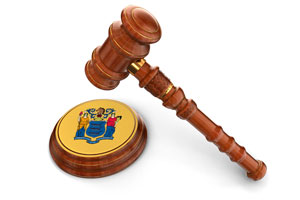The New Jersey Supreme Court will no longer allow experts to testify about a theory that describes how some children act after sexual abuse.
The Child Sexual Abuse Accommodation Syndrome Theory
The Child Sexual Abuse Accommodation Syndrome theory, or CSAAS, was proposed by Dr. Roland Summit in 1983. Dr. Summit proposed the theory to describe how he believed that sexually abused children responded to sexual abuse. Dr. Summit suggested that there were five stages: secrecy, helplessness, entrapment and accommodation, delayed disclosure, and retraction.
At least 40 states and Washington, D.C. allow testimony on CSAAS. New Jersey courts began allowing testimony on CSAAS in 1993.
State v. J.L.G.
In the case of State v. J.L.G., the Hudson County prosecutor’s office charged a man with aggravated sexual assault of his teenage stepdaughter over an 18-month period. The stepdaughter originally denied that any abuse had happened, supposedly because her mother had threatened to kill J.L.G. “if he’s doing something.” The girl later stated that abuse had occurred and used her phone to record one of the incidents. A jury convicted J.L.G. of first-degree aggravated sexual assault; third-degree aggravated criminal sexual contact; second-degree endangering the welfare of a child; and third-degree witness tampering.
J.L.G. appealed his conviction, arguing that expert testimony on CSAAS should have been excluded from his trial. The New Jersey Supreme Court accepted the case, but sent it to the trial court for an evidentiary hearing. At the hearing, the State presented two experts who testified about the use of CSAAS in child sex abuse matters. J.L.G. presented two experts who disagreed with the use of CSAAS.
Judge Peter F. Bariso, Jr. presided over the hearing. Judge Bariso determined that the State “failed to provide sufficient evidence to prove a general acceptance of CSAAS among clinical and research psychologists” and concluded that “CSAAS did not meet the Frye standards for admissibility and should no longer be used in child sexual abuse cases.”
Following the evidentiary hearing, the New Jersey Supreme Court ruled that “Based on what is known today, it is no longer possible to conclude that CSAAS has a sufficiently reliable basis in science to be the subject of expert testimony…. We therefore hold that expert testimony about CSAAS in general, and its component behaviors other than delayed disclosure, may no longer be admitted at criminal trials.”
Response to the Ruling
J.L.G.’s attorney, Joe Russo with the Office of the Public Defender, commented that “Pseudo-science, junk science, unreliable science has no place in the courtroom.”
Dr. Lynn Taska, a psychologist who gave expert testimony on CSAAS in State v. J.L.G. stated that CSAAS testimony is an important tool that prosecutors use to remind adult juries that children may act differently than adults for no apparent reason. She said, “It’s really important that jurors understand that when they see that kind of behavior, that doesn’t mean it’s fake… I worry that kids won’t be believed if the disclosure doesn’t look like a perfect statement.”
It is, however, common knowledge that children do not act like adults. Expert testimony is not admissible to tell jurors what they already know. And while prosecutors may regard CSAAS as “important,” the justice system should never allow convictions to be based on unreliable expert evidence that increases the likelihood of a wrongful conviction.




